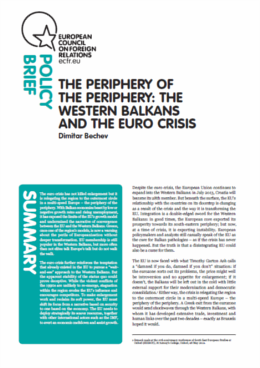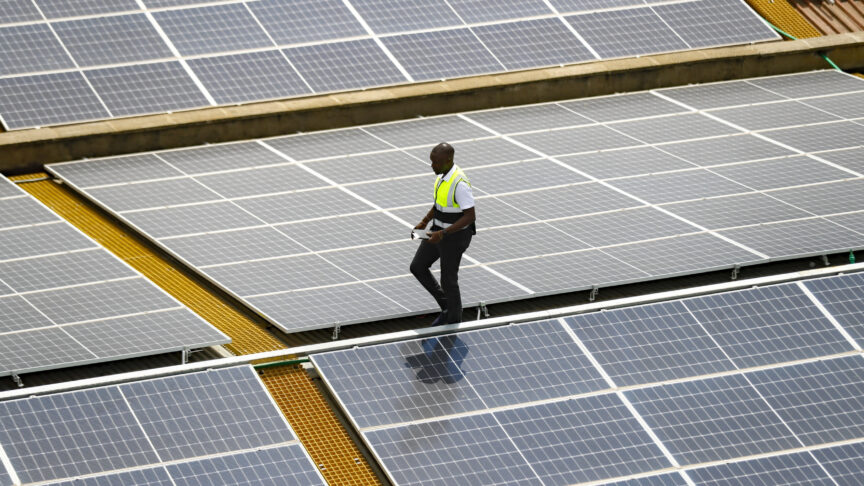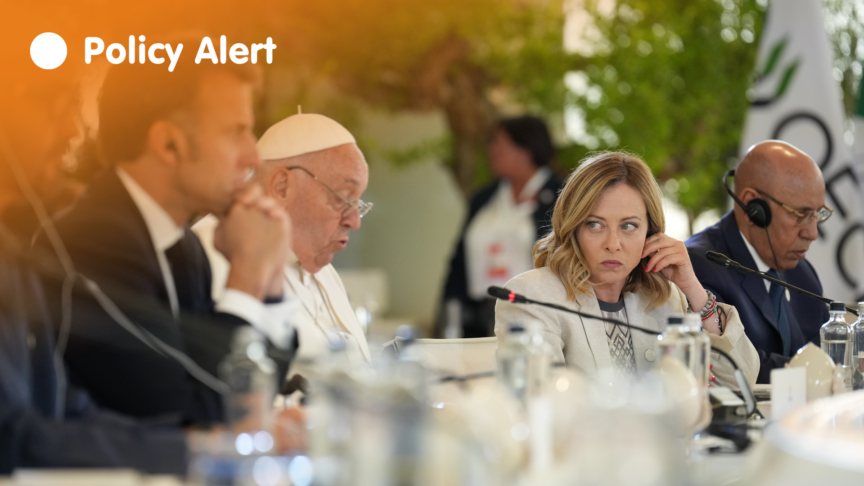The periphery of the periphery: The Western Balkans and the Euro crisis.
What next for EU enlargement?
Next July Croatia will become the 28th EU member, but as Europe struggles to deal with the euro crisis, has any further enlargement into the Western Balkans frozen to a halt? Although the temptation for the EU is to adopt a ‘wait and see’ strategy, the stability of the status quo may prove deceptive.
There is a silent pact between the enlargement-fatigued and crisis-hit EU member states and rent-seeking Balkan elites who do not mind slowing the pace of reform, with a ‘fire-brigade’ approach to periodic crises and outbursts of violence in Kosovo and elsewhere.
But in a new ECFR paper, “The periphery of the periphery: the Western Balkans and the euro crisis”,Dimitar Bechev warns that a failure to deliver transformation in the region would hurt EU credibility in other regions, like the Middle East and former Soviet Union. He argues that:
- The EU must shift its focus from a narrative based upon security, to one based upon the economy. A Greek exit would send shockwaves through the Western Balkan economies already weakened by the euro crisis, and threaten an economic meltdown.
- Stagnation and rising unemployment (especially among the young) wipe out support for the type of reformist policies that the EU supports. The popularity of the EU in the Western Balkans has declined markedly in some areas, as ‘Eurorealism’ takes over from ‘Europhilia’.
- Reform remains essential. The Western Balkans are also struggling to cope with the crisis thanks to domestic policy failures, highlighting that ‘Europeanisation’ needs to be accompanied by deeper transformation.
“In good times the EU exported prosperity to the Balkans; now in a time of crisis it is exporting instability. The EU needs to restore a sense of momentum towards enlargement and put pressure on under-performing governments. If not ambitious powers like Russia, Turkey and China will fill the gaps.”
– Dimitar Bechev, Head of ECFR Sofia office and Senior Policy Fellow.
Key facts:
- Montenegro opened accession talks on 29th June and hopes to join the EU in a decade
- Serbia was upgraded to candidate status back in March 2012
- Bosnia may submit a membership application this year, after its 16 month wait for a state level government ended in February 2012.
- Kosovo began a visa liberalisation dialogue with the European Commission on 19th January 2012.
- 2/3 of Western Balkans trade is with the EU.
This paper, like all ECFR publications, represents the views of its author, not the collective position of ECFR or its Council Members.
The European Council on Foreign Relations (ECFR) is the first pan-European think-tank. Launched in October 2007, its objective is to conduct research and promote informed debate across Europe on the development of coherent and effective European values based foreign policy. ECFR is independent and funded from a variety of sources. For more details go tohttps://ecfr.eu/content/entry/support
The European Council on Foreign Relations does not take collective positions. ECFR publications only represent the views of their individual authors.



